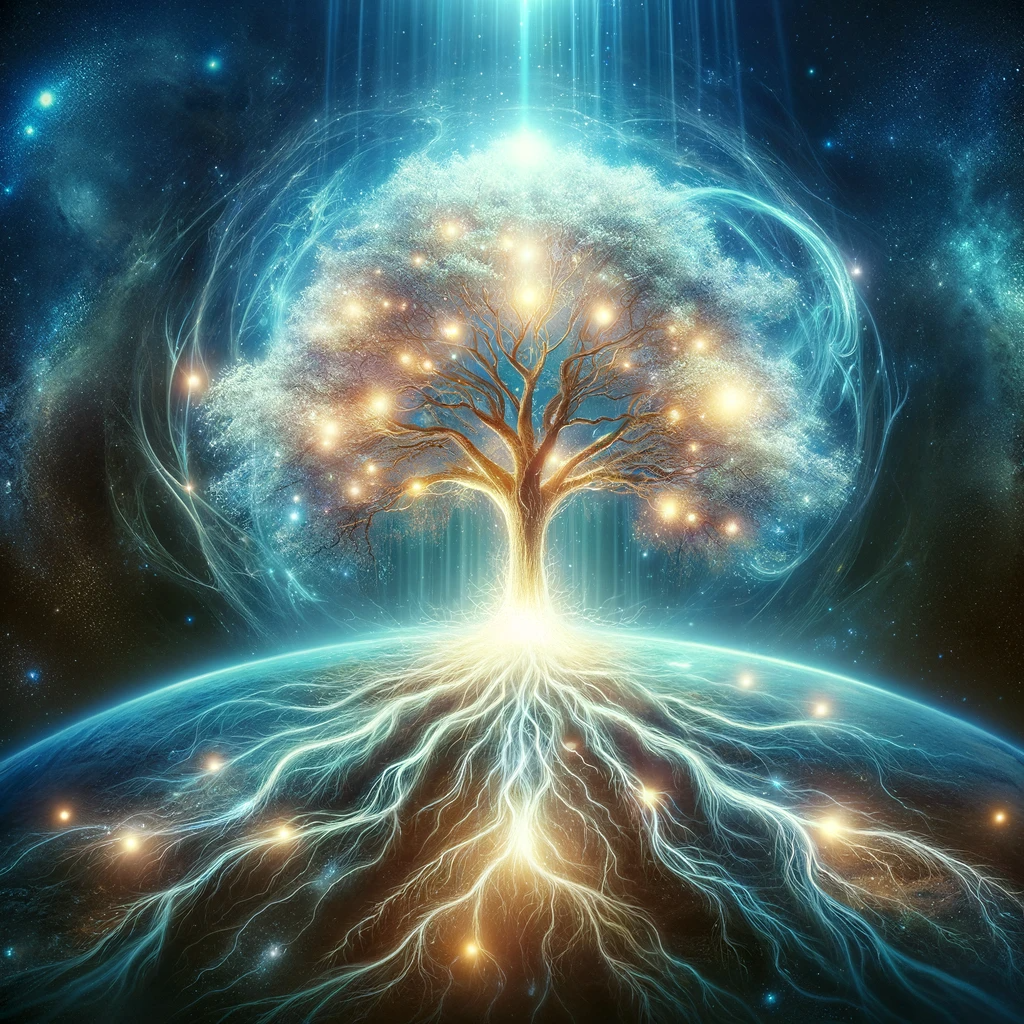Divine consciousness, also known as God-consciousness or Christ-consciousness, refers to an elevated state of awareness and being in which one realizes their oneness with the Divine or Absolute. It is a state of enlightenment, inner peace, and deep understanding in which the ego disappears and one transcends the limitations of the rational mind and physical world.
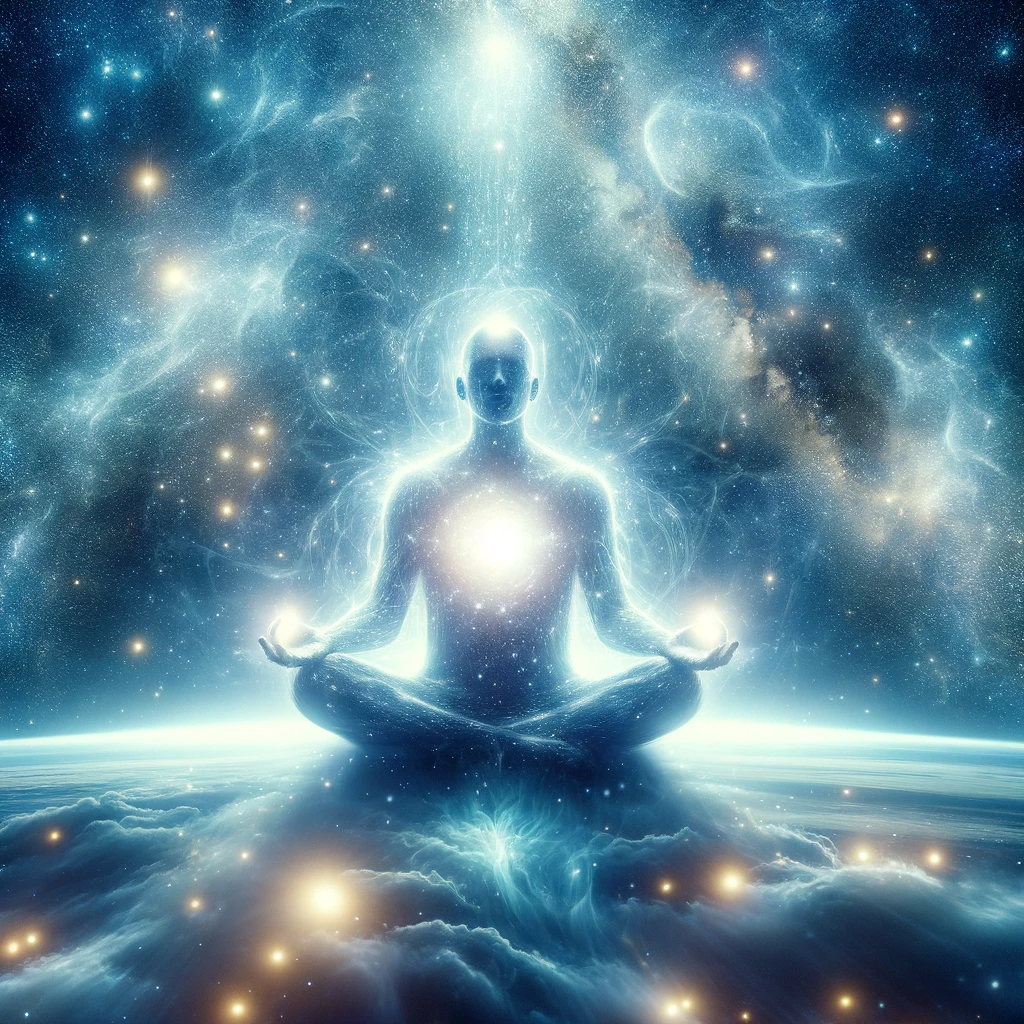
Characteristics of Divine Consciousness
Some key characteristics of divine consciousness include:
- Oneness – A sense of oneness and unity with all of existence, all people, and the universe. The realization that everything is interconnected and part of the same universal consciousness.
- Unconditional love – Being filled with divine, universal love for all beings. Having compassion for all people regardless of race, religion, gender, or other external labels.
- Inner peace – An abiding sense of peace, serenity, contentment that is not dependent on external circumstances. Inner stillness.
- Self-realization – Recognizing one’s true divine nature or true Self beyond the limited ego. Understanding that one’s true essence is pure consciousness or awareness itself.
- Living in the present – Remaining fully present and aware in each moment, not distracted by thoughts of past or future. Being fully conscious of the now.
- Non-judgment – Letting go of judgmental thinking and mental labels. Seeing things as they are without personal biases or interpretations.
- Surrender – Surrendering one’s limited ego to the will and wisdom of the Divine. Relinquishing personal control and placing trust in higher guidance.
- Acceptance – Accepting what is without resistance. Making peace with the present moment.
- Freedom – Feeling free from suffering, fear, worry, and all mental disturbances. Inner freedom and sovereignty.
- Pure perception – Perceiving the world clearly without mental filters or distortions. Seeing the Divine essence in all beings and things.
- Expansion – Feeling expanded beyond the limited personal self. Identifying with the eternal rather than the ephemeral.
- Beingness – Resting in pure being rather than constantly doing. Effortless presence.
- Bliss – Experiencing inner joy and bliss independent of circumstances.
- Unity in diversity – Appreciating the beauty of diversity as expressions of the One Divine consciousness. Seeing unity across apparent separateness.
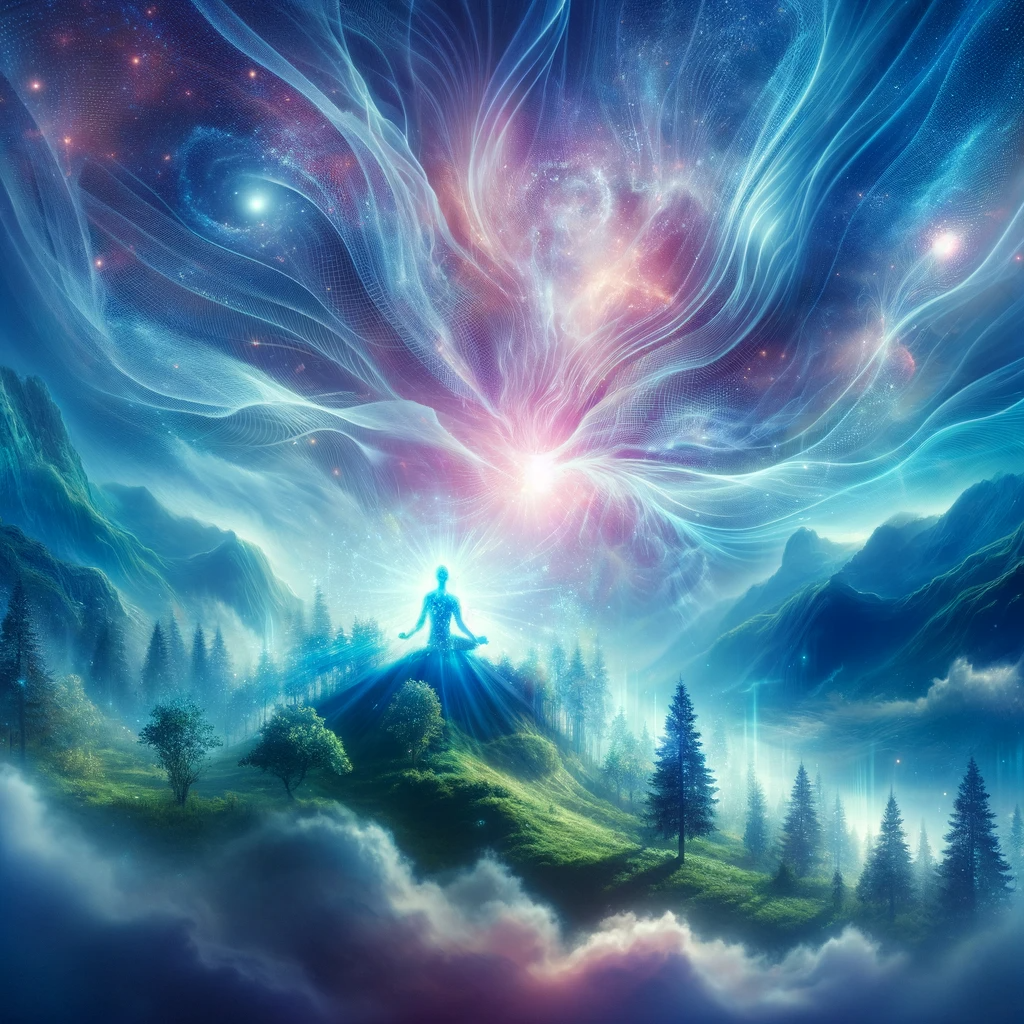
How is Divine Consciousness Attained?
There are various pathways that people follow to attain higher states of divine consciousness. Some key methods include:
- Meditation – Regular meditation practices calm the mind and take awareness beyond the thinking mind to directly experience inner stillness and higher states of consciousness.
- Prayer and devotion – Heart-centered practices of devotion, worship, chanting, and prayer can connect one to the Divine with love and humility.
- Service and compassion – When actions are done as selfless service to others with love, awareness expands beyond the ego.
- Spiritual practice – Disciplines like yoga, tai chi, qigong, fasting, and breathwork purify the body and mind to make realization possible.
- Self-inquiry – Questioning one’s limiting thoughts and beliefs and inquiring into the true nature of the Self. This dissolves illusions.
- Studying spiritual teachings – Ancient texts from mystics and saints provide wisdom that inspires awakening. Their words point the way.
- Satsang – Being in the presence of and learning from someone who has already realized higher states of consciousness. Their energy field elevates others.
- Psychedelics – Under proper guidance and conditions, psychedelics like psilocybin can dissolve rigid mental patterns and provide glimpses beyond the ego.
- Spiritual transmission – In rare cases, divine grace in the form of shaktipat or other transmissions from an enlightened being can catalyze awakening.
- Near-death experiences – For some, coming close to death dissolves the ego and provides an experience of divine consciousness and unconditional love.
The path varies based on the individual. But with sincere intention, practice, self-honesty, and openness to grace, divine consciousness can unfold.
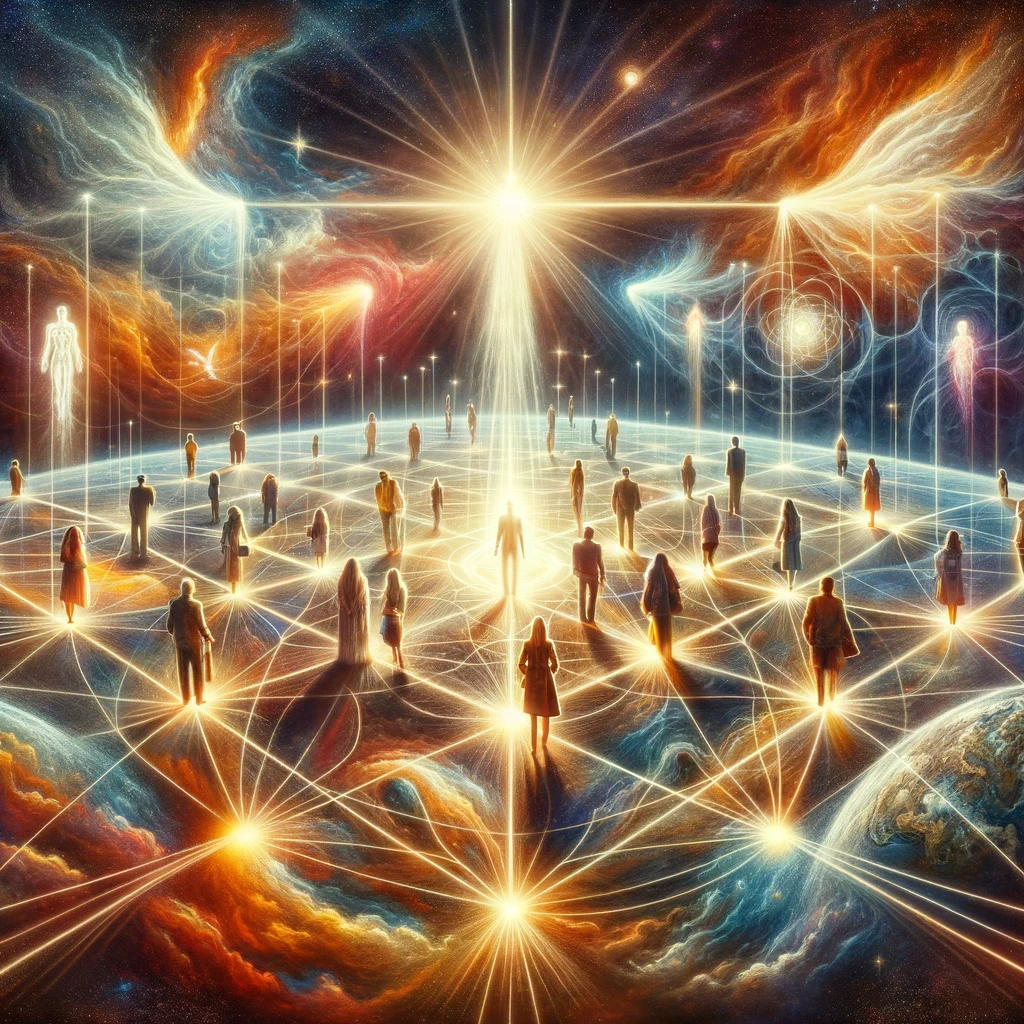
Signs of Progress Towards Divine Consciousness
How can you know if you are making progress on the spiritual path towards higher awareness? Here are some key signs:
- Feeling more peace, contentment, and inner stillness during meditation and daily life
- Having less judgment about others; seeing inherent good in all people
- Not taking situations so personally; letting go of pride and expectations
- Experiencing more compassion, kindness, and patience towards others
- Worrying less about future outcomes; trusting in divine providence
- Letting go of attachments to material things, reputation, praise, etc.
- Spending more time in nature, feeling part of the natural world
- Finding joy in simple pleasures rather than external stimulation
- Feeling unconditional love for family, friends, strangers, and even “enemies”
- Living more authentically in alignment with your truth and values
- Listening to and following your intuitive guidance more
- Feeling like your life has purpose beyond just personal gain
- Appreciating silence and solitude, not depending on constant activity
- Seeing things from a more expansive perspective
- Recognizing the inherent divinity and consciousness in all beings
As your ego-identification weakens and your consciousness expands, you naturally align more and more with divine qualities like unconditional love, inner peace, wisdom, and compassion. Trust the process.
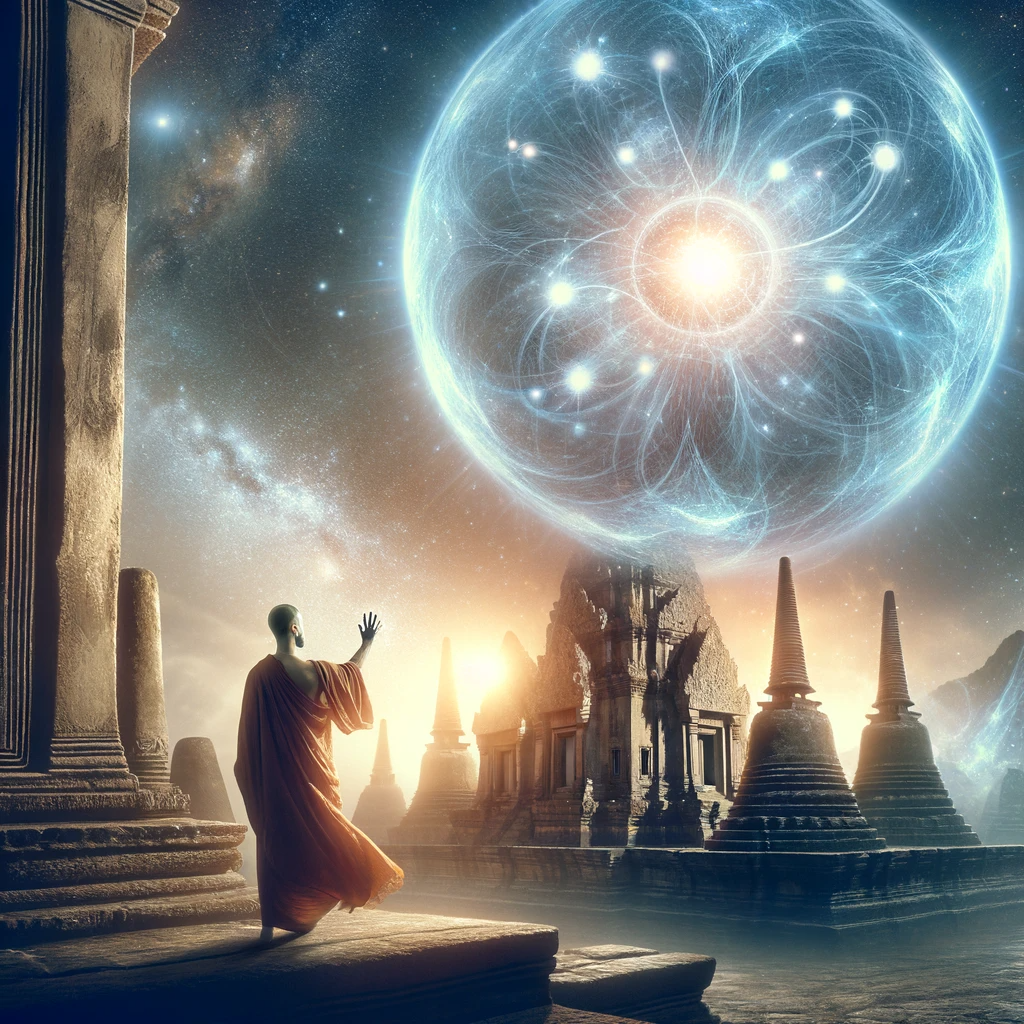
FAQ
Q: Is divine consciousness a state of enlightenment?
A: Yes, divine consciousness corresponds to an enlightened state of being, in which one transcends the ego and realizes their essential unity with the Divine ground of all being. It is an eternal state of awakening.
Q: Do you have to be religious or spiritual to experience divine consciousness?
A: No, while practices like meditation and prayer may help cultivate divine consciousness, one does not have to adhere to any particular religion. Divine consciousness is our inherent nature as human beings.
Q: How can I know if I have achieved divine consciousness?
A: There is no definitive way to measure it. But the qualities of divine love, compassion, inner peace, wisdom, seeing oneness in all beings, and freedom are key signs you have attained this elevated state of awareness. Your life flows gracefully.
Q: Can divine consciousness end suffering?
A: Yes, when one realizes their true divine nature, they transcend ego-based suffering and experience unconditional peace and contentment. Suffering based on resisting what is dissolves.
Q: Is divine consciousness a permanent state?
A: Once truly attained, divine consciousness is an eternal state of enlightenment. However, one must nurture it through ongoing spiritual practice, service, meditation, etc. Full enlightenment is permanent.
Divine consciousness represents our highest human potential – to transcend our limited egos and know ourselves as infinite consciousness incarnated in these temporal forms. With dedication and grace, we can all attain this state.
